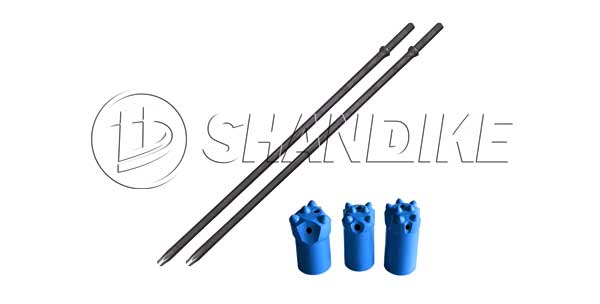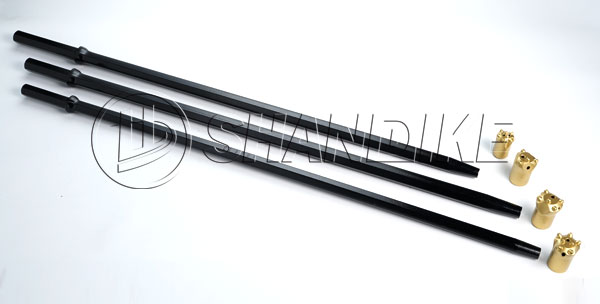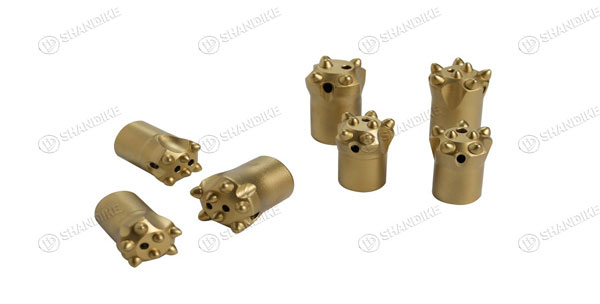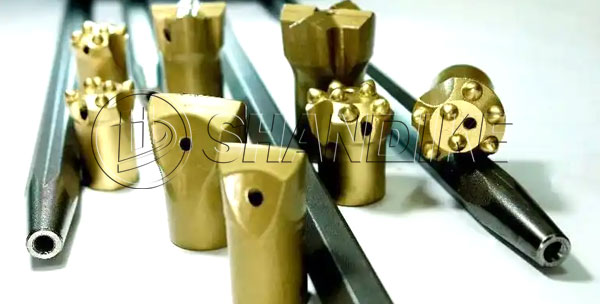How to choose conical rods for rock drills
Choosing the right conical rods for rock drills is crucial for ensuring efficient drilling and minimizing wear and tear on your equipment. Here are the key factors to consider when selecting conical rods:
1.Rock Type and Hardness
Soft to Medium Rocks: For softer rocks, standard conical rods with moderate hardness and toughness are suitable.
Hard and Abrasive Rocks: For harder or more abrasive rocks, choose rods made from high-strength, wear-resistant materials to withstand the increased stress and wear.
2.Rod Material
High-Quality Steel: Ensure the rods are made from high-quality, heat-treated steel to provide the necessary strength and durability.
Alloy Composition: Look for rods with alloy compositions that enhance hardness and resistance to wear, such as those containing chromium, molybdenum, or nickel.


3.Rod Dimensions
Diameter and Length: Match the rod diameter and length to the specifications of your rock drill and the drilling depth required. Using the wrong dimensions can lead to inefficiency or equipment damage.
Taper Angle: Ensure the taper angle of the conical rod matches the drill bit and drill machine specifications for a secure fit.
4.Thread Type
Compatibility: Check that the thread type (e.g., R32, T38, T45, T51) of the conical rod is compatible with your rock drill and drill bits. Mismatched threads can cause connection failures.
5.Surface Treatment
Hardened Surface: Opt for rods with surface treatments like induction hardening or coatings that improve wear resistance and extend the rod’s lifespan.
Corrosion Resistance: If drilling in wet or corrosive environments, consider rods with anti-corrosion treatments.
6.Manufacturer Reputation
Reliable Brands: Choose rods from reputable manufacturers known for producing high-quality drilling equipment. This ensures better performance and reliability.
Certifications: Look for rods that meet industry standards and certifications for quality and safety.
7.Application-Specific Requirements
Depth of Drilling: For deep drilling, select rods designed to handle the additional stress and torque.
Drilling Method: Consider whether you are using top hammer, down-the-hole (DTH), or other drilling methods, as each may require specific rod characteristics.
8.Cost vs. Performance
Balance: While cost is a factor, prioritize performance and durability. Cheaper rods may save money upfront but can lead to higher costs due to frequent replacements and downtime.
9.Maintenance and Inspection
Regular Checks: Choose rods that are easy to inspect and maintain. Regularly check for signs of wear, cracks, or deformation to prevent failures during operation.
10.Consultation with Experts
Professional Advice: If unsure, consult with drilling equipment specialists or the manufacturer to ensure you select the right conical rods for your specific needs.
By considering these factors, you can choose conical rods that optimize drilling performance, reduce equipment wear, and ensure safety during rock drilling operations.


